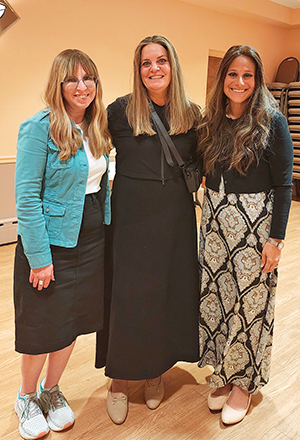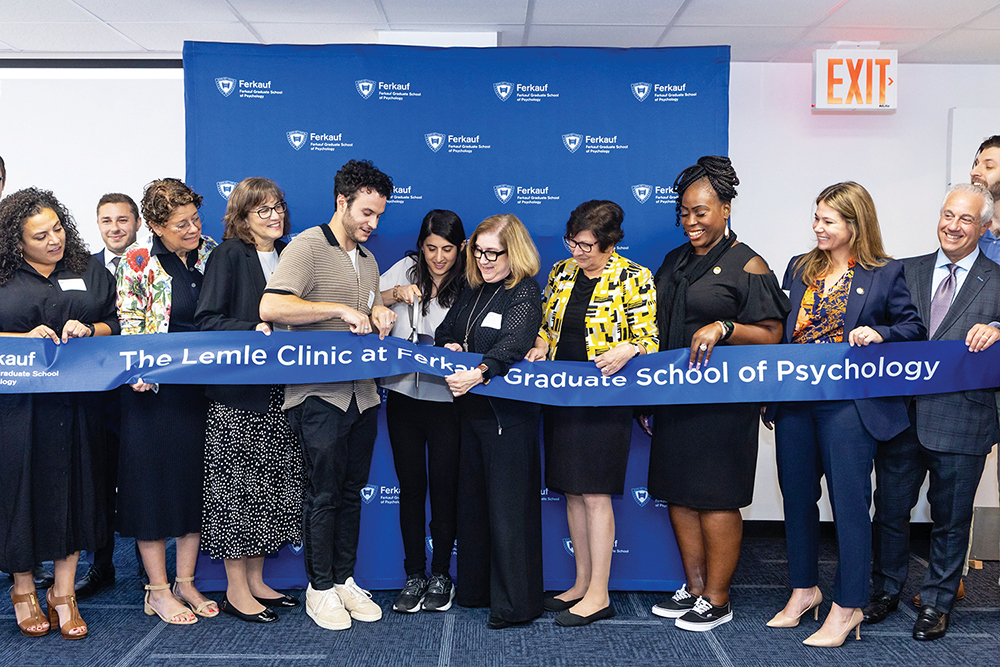
The Lazar Center, a boutique therapy practice located in the heart of Teaneck, is proud to offer Parent-Child Interaction Therapy (PCIT) in addition to its already robust range of exceptional therapeutic services, including play therapy, individual therapy, art therapy and psychoeducational evaluations.
PCIT is an evidence-based, short-term, intensive program geared to help parents and children (target age 3-7 years old) that works with both parents and children to improve the quality of the relationship by providing parents with the right tools and skills to better manage their child’s challenging behaviors.
PCIT yields tremendous benefits such as helping children learn to cooperate more and reduce disruptive behaviors. It improves communication between parent and child, and helps children feel better about themselves while increasing self-esteem. PCIT is also instrumental in helping children strengthen pro-social skills, such as sharing and turn-taking, and improves attention span and concentration. PCIT has been effective at increasing a child’s ability to problem-solve and manage frustration, and decreasing negative attention-seeking behaviors such as whining. There is a decline in parental stress, and the quality of the parent/child relationship is enhanced. Parents feel more confident, and healthy security and attachment between parent and child is strengthened.
“One of the criteria that I look for in deciding if a child will benefit from PCIT is if the behaviors are really disruptive at home,” said Dr. Eva Lazar, licensed clinical psychologist and director of The Lazar Center. When considering if a child would be a good fit for the program, she will ask parents if they feel overwhelmed by their child or if the parents and siblings find themselves tip-toeing around this family member. Parents may feel constant frustration and anger with their child or certain systems exist within a family to avoid potential tantrums.
“It’s not just about the child struggling but also about the parents,” Lazar added. Many times parents will report being embarrassed by their child’s behavior in public places and there is a constant worry that something arbitrary will happen that will set the child off. Sometimes parents feel lost with current behavioral strategies that prove ineffective for their situation, they are not doing right by their child due to constant yelling and screaming. Parents will be highly motivated to connect with their child more effectively.
The PCIT program takes between 12-14 sessions to complete and consists of two main phases. Phase one is the relationship enhancement component, which primarily focuses on Child-Directed Interactions (CDI), where parents are taught healthy communication skills through coaching with their child along with daily homework. In this phase parents learn play therapy techniques that allow them to build a strong foundation for a positive, warm rapport with their child.
Phase two features the discipline component and focuses on Parent-Directed Interactions (PDI) where parents are taught research-based child management skills, also through coaching with their child and daily homework. “What is fascinating is that when parents become well trained in CDI, they find that they barely have to use the skills they learned in the PDI phase because of how the program focuses on building that warm and healthy rapport between parent and child,” Lazar said.
At the initial intake session, Lazar illustrates what PCIT could look like for a particular family and the commitment it requires, which includes “nightly homework” where parents dedicate five minutes of one-on-one or “special time” with the challenging child, as well five minutes of one-on-one time with any siblings. Parents then fill out a homework sheet to track their progress and submit this sheet to Lazar when they come in for their sessions.
Following the initial intake session, both parent and child come in for an observation where Lazar observes the play interaction between parent and child. With a special listening device placed in their ear, she will then give parents three prompts in real time throughout the session. For the first prompt, Lazar has the parents tell their child to lead the playtime. Later in the session, she prompts the parent to start leading the playtime, and for the final prompt the parent is instructed to tell the child to help clean up the toys. “I learn a lot in those situations watching how the parent and child interact and I make notes and tally up certain important behavioral features of that play session,” said Lazar.
Following that observation, there is a “Teach” session where parents are taught P.R.I.D.E skills to utilize during playtime and during their nightly one-on-one time. “P” stands for “praise,” and Lazar explains that it is important to praise a child in a very labeled, specific way when they do things well. “R” stands for “reflect,” and this occurs when a child says something and the parent repeats it. Reflection demonstrates to the child that the parent is paying attention to what he or she is saying and, when done correctly, has the added benefit of building up language skills in a child.
“I” stands for “imitate” and sets the tone for the play as the parent imitates what the child is doing. “D” stands for “describe” which is when the parent describes what the child is doing as he or she is leading the play. “E” stands for “enjoy,” and Lazar says that it is to remind the parents to give themselves permission to have fun and enjoy this time. “We so often get caught up in our day-to-day lives that we don’t always get those moments of pure joy with our children, which is a major philosophy of the PCIT program.”
According to Lazar, it is easy to tell if parents are really doing the homework each week because they are the families who move through the program much faster. Their children reach certain goals for specific prosocial behavior and positive shifts occur sooner.
As long as parents remain committed to doing the nightly homework, the child will reach certain goals for specific prosocial behaviors sooner, and positive shifts will start to take place. In fact, parents will start to notice such shifts in just four to five coaching sessions, both in the way they play with their kids and the quality of their relationship with their children.
Dr. Eva Lazar is a New Jersey and New York licensed clinical psychologist, as well as a certified educational supervisor, school psychologist and licensed K-12 principal. She obtained her master’s degree in education with a specialization in preschool psychology, a professional diploma in school psychology and a PhD in psychology from Fordham University. Lazar has over 25 years of experience in the education and mental health fields, working in public, independent and Jewish day schools.
To learn more about PCIT and how it could help you and your family visit www.thelazarcenter.com. Email [email protected] or call 201-530-7475










